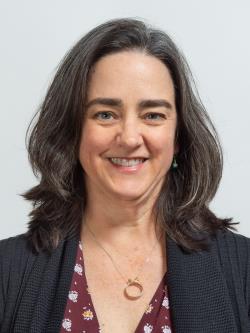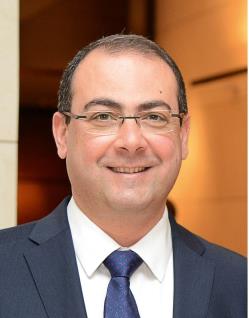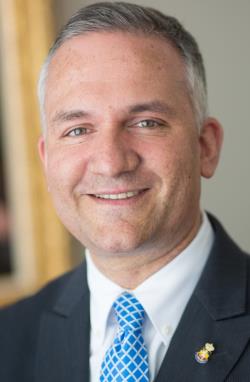DPI+H – health for all through digital public infrastructure
PATH, International Telecommunication Union
Session 213
Understanding the essential connections between eGovernment investments and the health sector.
The WSIS+20 Forum High-Level Event, an extended version of the WSIS Forum, will mark a significant milestone of twenty years of progress made in the implementation of the outcomes of the World Summit on the Information Society. Twenty years ago, WSIS set the framework for global digital cooperation with a vision to build people-centric, inclusive, and development-oriented information and knowledge societies. The WSIS+20 Forum High-Level Event will host multistakeholder discussions to take stock of the achievements and key trends, challenges, and opportunities, and to evaluate the accomplishments during the last twenty years. The High-Level Event presents a powerful moment to elevate and explore the intersection of two accelerating digital movements – global digital health and digital public infrastructure.
The next decade of global digital health has the potential to greatly accelerate the achievement of sustainable, scaled, interoperable digital health systems in low- and middle-income countries (LMICs). These systems lay the foundation for emerging capabilities like predictive analytics and artificial intelligence (AI) and enable their use in these countries. Recent developments are mapping out a pathway toward realizing these possibilities through an infrastructural approach to digital health investments. Rather than focusing on specific digital health interventions, an infrastructural investment approach prioritizes a subset of digital systems and services that act as the foundation for many priority use cases in digital health, today and in the future. This infrastructure-focused approach creates efficiencies across an ecosystem of innovators, implementers, and governments by leveraging a common set of open, widely scaled, relatively basic digital functions for health systems.
This approach builds on the emerging discourse around digital public infrastructure (DPI) by recognizing the transformative potential of inclusive, foundational, open, and transparently governed digital platforms. DPIs are intended to perform basic digital functions, at scale, in a way that others can build upon. Digital public infrastructure for health (DPI-H) encapsulates health-specific digital functions that similarly unlock the ability for many digital health interventions and use cases to effectively scale. Supporting countries to adopt DPI-H opens a critical path to achieving the goals of the global digital health community, and ultimately accelerate the world’s progress to health for all.

Laurie Werner leads the Center of Digital and Data Excellence at PATH, which partners with countries and communities to achieve health equity through digital transformation and data use. Over the past twenty years, she has focused her career on seeking sustainable solutions to global poverty and health. She began her career working in international development in Latin America, with a focus on sustainable agriculture practices, land ownership, and microfinance. She led a multi-faceted program across multiple countries for Agros International, managing the program implementation and operations in five country offices in Central America and Mexico.
Ms. Werner joined PATH in 2011, as a member of the Decade of Vaccines Collaboration Secretariat, where she coordinated various working groups of experts and external consultation events to support the creation of the Global Vaccine Action Plan. She then led the Better Immunization Data (BID) Initiative portfolio of work at PATH in 2013, focusing on improving immunization data collection, quality, and use for better decision-making in partnership with African countries’. More recently she provided leadership to the Data Use Partnership in Tanzania and the Data Use Acceleration and Learning project, identifying the enablers for successful digital transformation across five African countries.
Laurie has an M.P.A. from the Evans School of Public Affairs at the University of Washington.

Philippe Veltsos is a leading innovator and entrepreneur in public health with a passion for addressing global issues through digital technologies. As Vital Wave’s Chief Technology Officer, he brings over 20 years of strategic leadership and implementation experience working with public health agencies, partners, and global donors. His work consistently embraces the design of fit-for-purpose digital solutions that align with international best practices, the integration of global goods, and the application of industry standards.
Mr. Veltsos brings a unique combination of technical, programmatic, and executive experience. As an officer at Vital Wave, he contributes to high-quality service delivery, technical methodologies, trusted client engagement, and corporate strategy. His skill set and leadership ensure that effective technical solutions address client needs along with ecosystem constraints and challenges.
In working with key stakeholders across the global digital health field, Mr. Veltsos has ensured the coordination, adaptation and use of fit-for-purpose digital solutions and global goods that strengthen country systems and ownership. As the Technical Director for Digital Health within Digital Square at PATH, he provided strategic leadership and direction ensuring technical rigor across PATH’s digital initiatives and programs. While at the World Health Organization (WHO), Mr. Veltsos drove the creation of technical standards and guidelines in response to COVID-19 while supporting the effective use of IT solutions internally. This is complemented by his role as co-founder and CEO of Novel-T, a public-health professional services firm. Under his leadership, Novel-T grew to serve the digital health community and dozens of country governments with digital solutions focused on data analytics and visualization, data integration and harmonization, and GIS.
Mr. Veltsos has numerous technical certifications, a master’s degree in Business Administration, and a master’s degree in Science and Telecommunications. He is fluent in both English and French.

Mr. Eskandar is the Head of the Digital Services Division at the Digital Society Division of the Telecommunication Development Bureau of ITU. Mr. Eskandar is currently involved in providing assistance to several developing countries by advising on digital applications and services strategies and policies, assisting in implementing technical co-operation projects in areas of digital governance, health, agriculture, and education. Mr Eskandar is currently leading major projects on digital government, open source for public services, digital health, digital agriculture, and smart villages in collaboration with several governments, UN agencies and other stakeholders. He has led the development of several guidelines and best practices reports on digital applications particularly on digital Government, digital Health and digital Agriculture.
Mr. Eskandar has more than 30 years of extensive on-the-ground experience in the field of ICT for Development where he, through working with the International Federation of Red Cross and Red Crescent in Switzerland and, UNDP, Ministry of ICT and other NGOs in Egypt, was involved in several development projects in the fields of Health, Education, Illiteracy Eradication, Community Development, SME development and Micro Credits.
Mr. Eskandar has an educational background in Electrical Engineering (Telecommunications) and has completed an MBA from McGill University, Canada and a Master Degree in Social and Economic Development Studies from University of Paris I, France.
.jpg?maxwidth=250)
Chrissy Martin Meier is a recognized thought leader in digital development, with over a decade of experience managing complex initiatives which deliver positive results for people. Currently the Director of Policy, Chrissy is drawing on her extensive technical expertise gained through working with organizations including the World Bank (CGAP, ID4D and G2Px), the Swiss Capacity Building Facility (SCBF), GIZ, the Center for Financial Inclusion at Accion, USAID and many others.
She began her career in the private sector, launching the first mobile money product in Haiti with the telecommunications company Digicel and driving consumer insights for the start-up mobile payments company Zoona. A graduate of the University of Virginia and The Fletcher School at Tufts University, Chrissy now lives with her family in Switzerland.

Jai Ganesh Udayasankaran (Jai) is the Executive Director of Asia eHealth Information Network (AeHIN). Jai has over 20 years of experience in planning, procurement, implementation of a wide spectrum of enterprise digital health solutions including web-based Hospital Information Systems (HIS), Picture Archiving and Communication Systems (PACS), telemedicine, tele-education, and chronic disease management portals.
He is part of Advisory Committee of Global Digital Health Network (GDHN), Expert Committee of Global South eHealth Observatory, Technical Committee of Global Digital Health Monitor (GDHM), Policy Circle of Transform Health Coalition, Health Informatics Sectional Committee of the Bureau of Indian Standards (BIS) and an adjunct faculty at the Department of Health Information Management from Manipal Academy of Higher Education (MAHE), India. He has been a resource person for national HIS strengthening and digital health convergence workshops facilitated by Asia eHealth Information Network (AeHIN) together with the Ministry of Health and partners in South East Asia and Western Pacific regional countries.

Dr Alain Labrique is the Director for the Department of Digital Health and Innovation at the World Health Organization. He is the founding director of the Johns Hopkins University Global mHealth Initiative and founding Editor-in-Chief for the Oxford Open Digital Health journal. An infectious disease and population epidemiologist, he served until September of 2022 as Professor and the inaugural Associate Chair for Research in Department of International Health at the Johns Hopkins University Bloomberg School of Public Health. Dr Labrique has led research in over 30 countries and was recognized as one of the Top 11 mHealth Innovators in 2011. With over 250 publications in high-impact journals on Digital Health and Emerging Infectious Diseases, his frameworks for Digital Health remain among the most cited. Dr Labrique has served as a Technical Advisor to several global health agencies and Ministries of Health and chaired the WHO Digital Health Guidelines Development Group.
-
 C2. Information and communication infrastructure
C2. Information and communication infrastructure
-
 C6. Enabling environment
C6. Enabling environment
-
 C7. ICT applications: benefits in all aspects of life — E-health
C7. ICT applications: benefits in all aspects of life — E-health
-
 C11. International and regional cooperation
C11. International and regional cooperation
-
 Goal 3: Ensure healthy lives and promote well-being for all
Goal 3: Ensure healthy lives and promote well-being for all
-
 Goal 10: Reduce inequality within and among countries
Goal 10: Reduce inequality within and among countries